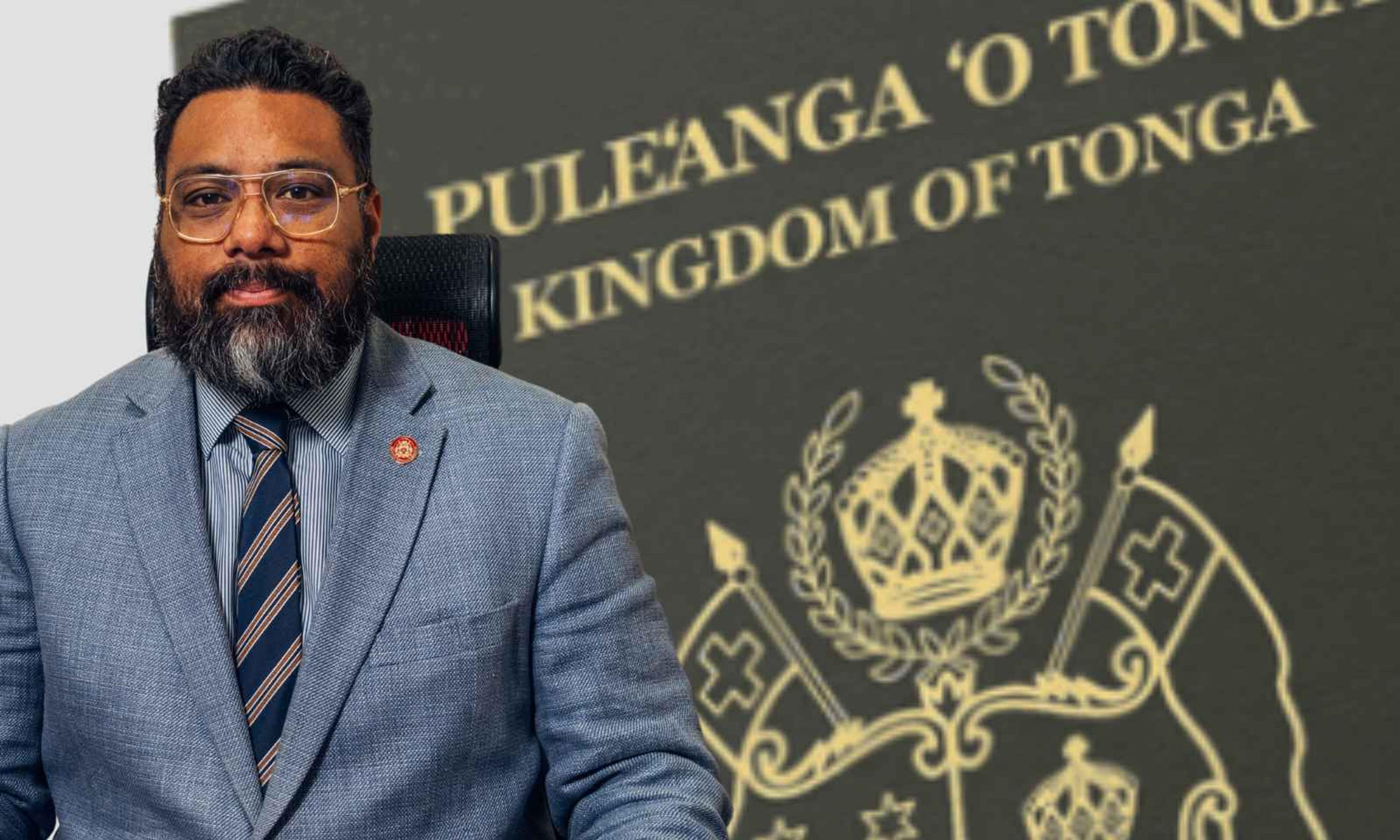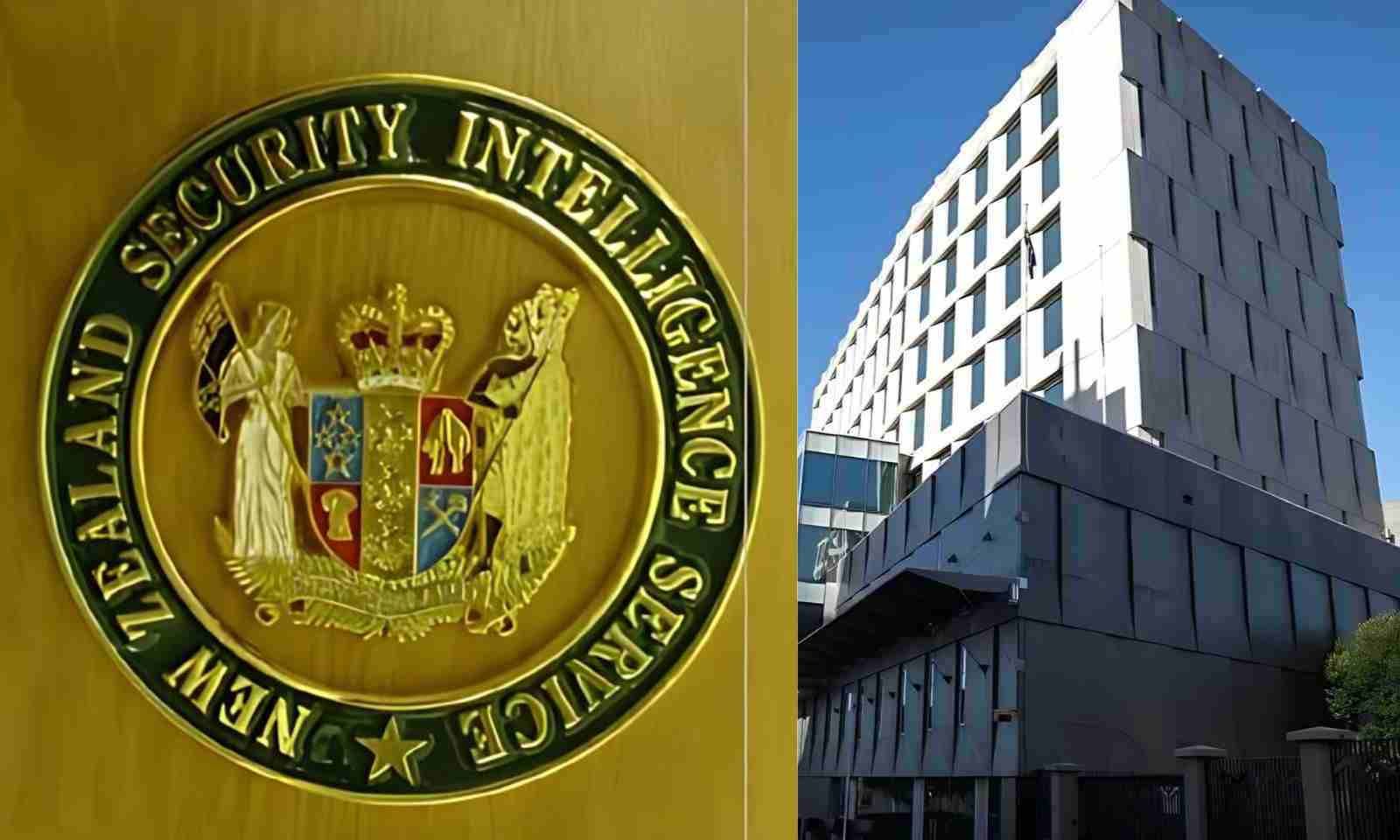

China and Russia's foreign interference and efforts to co-opt New Zealanders are among threats highlighted by a new NZSIS report.
Photo/NZSIS
'Wake-up call for Kiwis': Report details security risks facing NZ
The Security Intelligence Service says threats to Aotearoa's national security are likely to come from within, rather than external forces.



Fresh warning as Tonga PM defends citizenship investment scheme

‘I knew something was wrong’: Pacific children miss out on early hearing support

Tonga makes historic breakthrough at Oceania Youth Chess Championship



Fresh warning as Tonga PM defends citizenship investment scheme

‘I knew something was wrong’: Pacific children miss out on early hearing support

Tonga makes historic breakthrough at Oceania Youth Chess Championship
A new report released by the New Zealand Security Intelligence Service, Te Pā Whakamarumaru, has highlighted threats to Aotearoa's national security.
Key risks identified by the spy agency include foreign interference and espionage, risks brewing from the ongoing power play in the Indo-Pacific, as well as violent extremism, and another lone-wolf terror attack.
China’s foreign interference and efforts to co-opt Kiwis with “bogus” jobs are also among the threats highlighted by the SIS report.
Defence and security expert Dr John Battersby, of Massey University Te Kunenga Ki Pūrehuroa, has welcomed the report, saying it's a wake-up call for New Zealanders to understand a "bit better" and pay a "bit more attention" to their country's security.
Battersby told Pacific Mornings' William Terite that while the SIS report has more information, he doesn't think there have been any significant risks greater than they were before.
Watch defence and security expert Dr John Battersby's interview below.
In its second annual security threat environment report, published on Wednesday, the SIS has described interference and espionage activity conducted by Beijing in New Zealand than in previous reports by the spy agency.
It also describes concern about Russia monitoring its citizens in Aotearoa, warning a foreign country about its attempted spying on New Zealand soil, and efforts by foreign actors to build space sector infrastructure for possible military use in New Zealand, under the guise of civilian research.
Battersby says the latest report has articulated those risks "a little bit better".
"There's always a risk of terrorism in New Zealand. There is always an ongoing risk of espionage here. And the way the internet has developed now, cyber interference and all sorts of things as possible from all sorts of different origins.
"I think it's probably quite a good wake-up call for New Zealanders just to perhaps pay a little bit more attention to their security in general because we're not in a benign environment.
"We've had espionage here, we've had people spying for other countries here. And we're constantly really at risk of malicious cyberattacks coming from criminal organisations or criminal under the guilt as well."
All of that, he thinks, can be put within the hand of foreign interference here.

Threats to New Zealand's national security are increasingly likely to come from within, a new NZSIS report says. Photo/RNZ
Director-General of Security, Andrew Hampton, says the first report, released last year, raised the awareness of New Zealand's security situation while the new assessment aimed to be as upfront as possible about the threats facing Aotearoa.
He says the report includes case studies and analysis on recent investigations that reveal the level of security threats observed by the SIS.
Battersby says this year's threat assessment indicates that the situation is becoming increasingly complex across foreign interference and espionage, violent extremism and terrorism, and the risk of an insider threat.
"I don't think we can ever ensure that it doesn't happen. I think that's the point. Look, it's very, very unlikely. It's not something that I think we need to go out and worry about every day.
"The way that our security agencies are resourced and the limitations that they have, they aren't going to catch the lazy, stupid, careless, and unlucky people who are going to plan these sorts of things.
"But they're never going to be absolutely able to guarantee they'll catch the very careful security conscious, paranoid, for example. So there's always this risk sitting with us at the moment that out of nowhere, we could actually be hit again at some point."
But Battersby says it is "still very, very remote and unlikey that we just can't rule it out".

The NZSIS seal, left, and Pipitea House in Wellington, right, which houses the New Zealand Security Intelligence Service and the Government Communciation and Security Bureau. Photos/file
The SIS believes there are people in positions of power giving foreign states classified information.
For example, the spy agency says China uses professional networking sites such as Linked In which may provide sources of intelligence.
Battersby says there are some countries that SIS have identified as foreign interferers such as China and Russia.
"I think we can probably look to where countries who have an interest in, say, the Pacific or the South Pacific and want to get inside what we're doing and want to influence what we're doing. There are countries that have that sort of interest, that might be.
"We have made our position pretty clear on Ukraine, so it could be that the Russians will have something going on here in order to encourage pro-Russian reporting or to discourage criticism of their actions there. That too is a possibility.
"And the People's Republic of China has been noted as quite an active espionage in terms of anywhere where there's the information that they think is relevant to them, they will use.
"But that doesn't mean that any of these countries are necessarily enemies of ours. They are just seeing a potential value in certain information that they can get, or they can see some value in trying to change the way that we understand the problem."
Watch Defence Minister Judith Collins' interview about maritime security, climate change, humanitarian assistance and disaster relief, and regional security architecture.